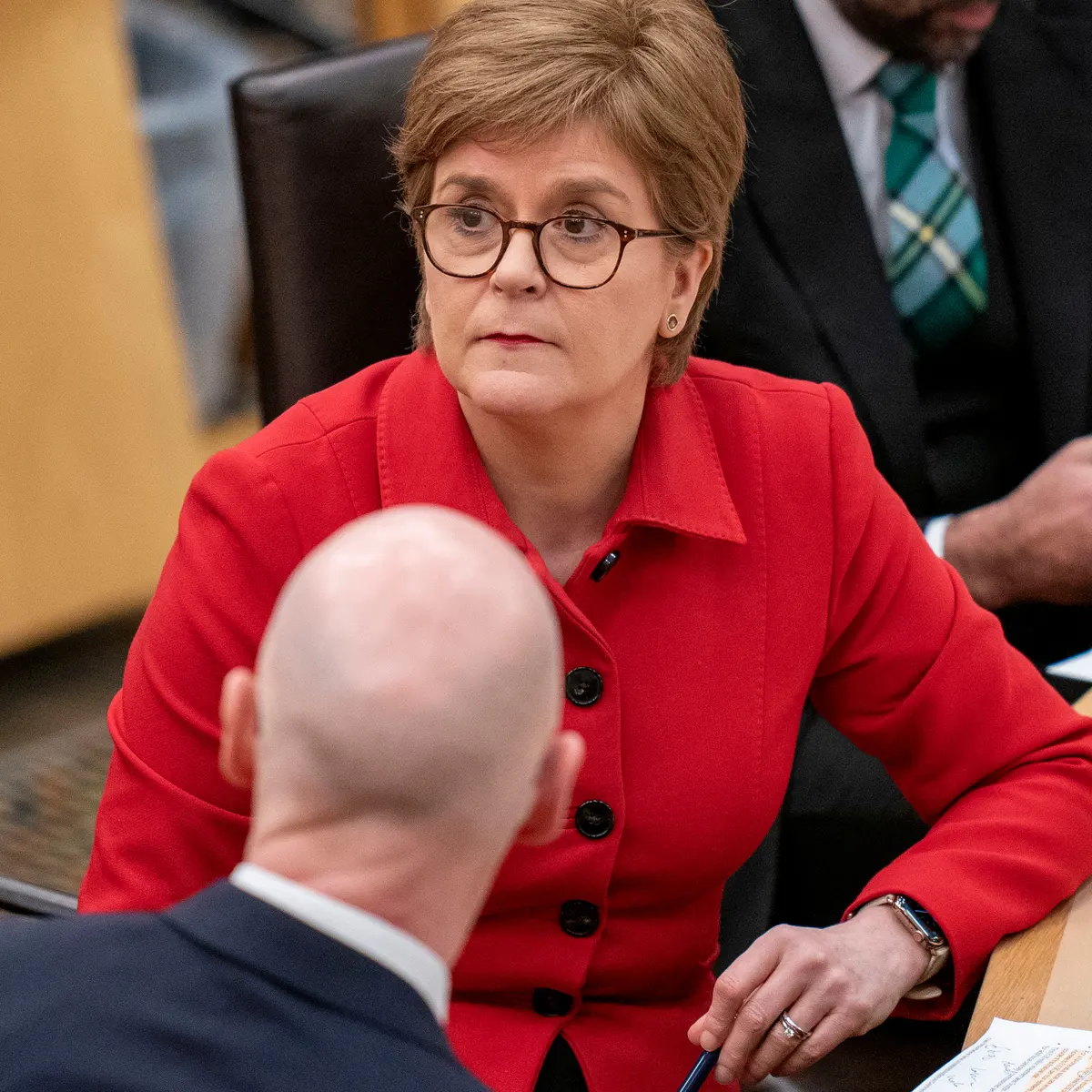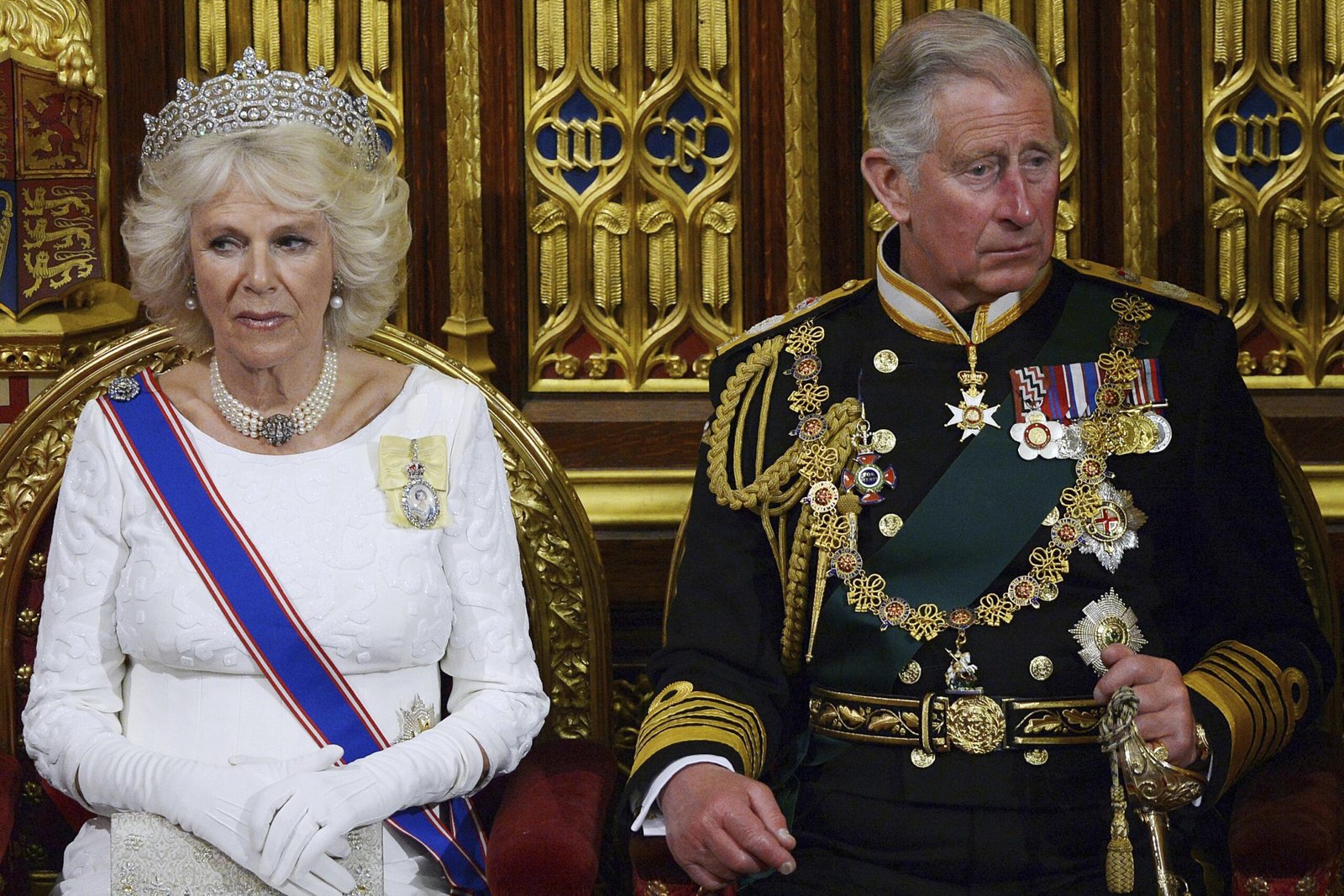
Nicola Sturgeon has argued for a wider debate on teenagers’ rights, as she defended plans to allow 16-year-olds to change their legal s..ex.
Scotland‘s first minister said there were inconsistencies in rules on what teenagers could do, and cited the legal drinking age in pubs as an example. However, she later clarified her comments, saying she did not favour a change in existing drinking rules.
Scotland’s gender recognition bill has been blocked by the UK government. Secretary of State for Scotland Alister Jack used a Section 35 order to prevent it becoming law on grounds it would have an adverse impact on equalities laws that apply across Scotland, England and Wales – a claim disputed by the Scottish government.
In an interview for Sunday with Laura Kuenssberg, Ms Sturgeon was questioned about a provision of the bill that would reduce the age at which a person can apply for a gender recognition certificate from 18 to 16.
She was asked why she believed a 16-year-old was old enough to make such a profound decision at an age when they are forbidden from buying a drink in a pub or driving a car.
Ms Sturgeon answered: “I used to – when I was growing up and probably sixteen – used to take the view that there should be a single age of consent.
“And I think over time I think it is right to look at, why can’t a 16-year-old drink alcohol in a pub. You need to look at the particular circumstances, the physical issues around some of these things.”
However, she later tweeted that this was bad phrasing on her part, and said she was not calling for a change in drinking rules. In her interview Ms Sturgeon said there were many important decisions that 16-year-olds were already allowed to take such as getting married or joining the armed forces.
She said she believed the very small number of young people in this age group who might want to change their legal sex should be allowed to do so, and that additional safeguards had been included in the bill for under-18s.
Labour leader Sir Keir Starmer has previously told Sunday with Laura Kuenssberg he believes 16 is too young for a person to take such an important decision.
However, he stopped short of backing a UK government challenge to the Holyrood legislation and called for a respectful debate that did not treat the issues as a “political football”.
At 16 years old, you can join the armed forces, however, you can’t serve on the frontline until your 18th birthday.
In Scotland, you can get married or enter a civil partnership, as well as consent to lawful sexual intercourse – although not until you are 18 in England and Wales.
It’s also possible to get a full-time job, join a trade union and apply for a home through the local council.
A 16-year-old can vote in Scottish parliament or council elections but must wait until they turn 18 to vote in a general election.
Anyone aged 16 or over can change their name without the consent of a parent or guardian.
While it’s illegal for a 16-year-old to buy alcohol, they can drink wine, beer or cider with a meal in licensed premises if accompanied by a parent. Police will not confiscate tobacco from a 16-year-old but you have to be 18 to purchase cigarettes or vaping equipment.
Presentational grey line
The UK government, in blocking the legislation, cited concerns over its effect on legal rights to run single-sex clubs, associations and schools, as well as rules on equal pay for men and women.
Scottish Secretary Alister Jack also said that having two different systems operating in the UK risked an increase in fraudulent or “bad faith” applications.
Nicola Sturgeon has branded the move “an attack on the democratically elected Scottish parliament” and said the row would “inevitably” end up in court.
This was bad phrasing on my part – so not having a go at the BBC – but this is not what I meant. I meant that there are reasons why you can do some things at 16 and not others. I do not favour a review of the current age rules on alcohol https://t.co/iyRvZ5EfWr
— Nicola Sturgeon (@NicolaSturgeon) January 21, 2023
The first minister told Laura Kuenssberg the Scottish government would do “everything to stand up for and defend the legislation”.
On her own political future, she said there was “plenty left in the tank” and that she hopes to be the leader who takes Scotland to independence.
It comes after New Zealand’s Prime Minister Jacinda Ardern announced she had decided to stand down, saying she no longer had “enough in the tank to do [the job] justice”.
“If I ever reach the point that she has clearly reached, where I think overall I just can’t give the job everything it deserves, then I hope I have the same courage she’s had in saying, ‘Okay, this is the point to go’,” Ms Sturgeon said.
On teachers’ strikes, Ms Sturgeon said she would like to pay teachers more – and she would “probably” like to pay all public sector workers more – but that fairness was important following pay agreements with other workers in the education sector.
She said that pay increase offers have been better in Scotland than in England and much of the proposed industrial action has so far been avoided as a result.
When asked about the issues facing the NHS in Scotland, she said that some patients facing long waits may well feel it is “in crisis” but she said her government was starting to reduce waiting times through “a range of initiatives and funding” as winter pressures eased.
Source: BBC
In other news – King Charles’s coronation plans include Windsor concert
World-famous entertainers will perform at Windsor Castle as part of a weekend of celebrations to mark the King’s coronation, it has been announced.












